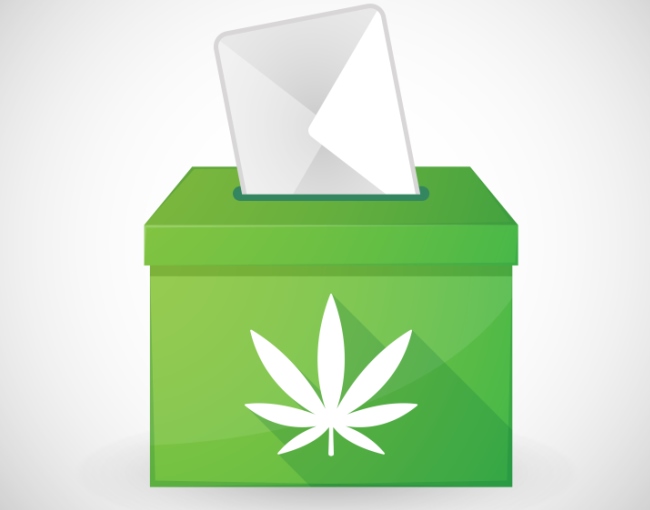Even as the future of recreational cannabis at the federal level is dim, Illinois may be moving toward a brighter horizon for recreational cannabis. On March 20, 2018, during a state primary voting cycle, Cook County (which includes the city of Chicago) residents voted on a non-binding referendum addressing the legalization of recreational cannabis in the State of Illinois. Sixty-eight percent of ballots cast included a vote in favor of legalizing recreational cannabis cultivation, sale and use for those 21 and older.
While the referendum is non-binding and does not on its own make cannabis legal for recreational use, it is a useful tool for gauging public interest. In December 2017, Cook County commissioners approved the question getting added to the ballot in an unanimous vote. The full text of the proposed resolution approved by the Board of Commissioners can be found on the Cook County website, but the referendum appeared on the ballot as follows:
“Shall the State of Illinois legalize the cultivation, manufacture, distribution, testing, and sale of marijuana and marijuana products for recreational use by adults 21 and older subject to state regulation, taxation and local ordinance?"
However, there are opponents to the referendum and recreational cannabis. In November 2017, an organization called “Smart Approaches to Marijuana” (SAM) argued that the phrasing of the ballot referendum would result in misleading results. After a telephone survey of 625 Illinois voters, SAM found that only 23% of Illinois voters supported legalizing recreational cannabis. Additionally, 47% of Illinois voters would leave the state cannabis laws as they currently exist, not expanding the law to include recreational cannabis.
Despite the argument over the wording of the referendum, it is consistent with other efforts within Illinois to pass a law legalizing recreational cannabis. Illinois General Assembly Bill SB0753 has been passing through committees since 2015, seeking to legalize recreational cannabis for adults 21 years and older.
This county ballot referendum may be a precursor to a statewide referendum of a similar nature. A ballot measure has been approved by the Illinois Senate and has been passed to the House for approval seeking to place a statewide referendum on the November 2018 state ballot. The contents of this ballot referendum would currently appear as follows:
"Do you support the legalization of possession and use of marijuana by persons who are at least 21 years of age, subject to regulation and taxation that is similar to the regulation and taxation of tobacco and alcohol?”
Like the Cook County referendum, this is a non-binding referendum designed to poll the opinion on marijuana recreational use among Illinois voters. Its outcome could be used to support the passing or killing of laws like SB0753. All of these efforts, of course, are overshadowed by the federal government’s ongoing efforts to grapple with state legalization despite the Controlled Substances Act’s continued prohibitions which make recreational cannabis illegal under federal law regardless of state law.
















